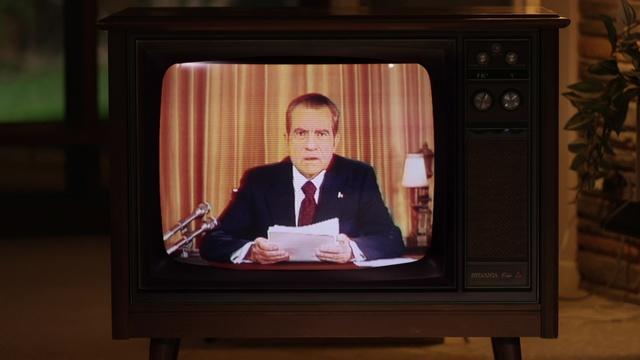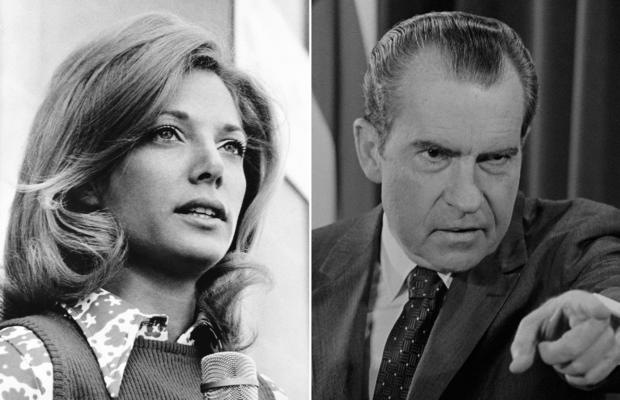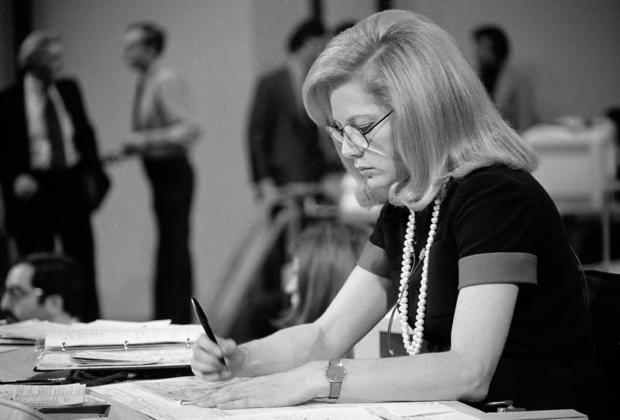▶ Watch Video: Nixon’s America and secret slush funds: the beginnings of a scandal revealed
In 1972, long before she became a correspondent for 60 Minutes, Lesley Stahl was a young reporter at CBS News. Over the last 50 years, she has interviewed every president since Nixon and covered countless political stories. Here, in her own words, she recounts and reflects on one of her first: the Watergate scandal.
Hear more from Stahl in “Watergate: High Crimes in the White House,” premiering Friday, June 17 at 9 p.m. ET on CBS. It will also be available to stream on the CBS News app and Paramount+.
Arraignment of the Watergate burglars
Ron Ziegler, the press secretary in the White House, said it was a third-rate burglary and everybody thought that. And to be honest, that’s why I got to cover the story: I was the new hire and it was … thought to be so insignificant that they sent the new kid.
But the reason that CBS did send a reporter was because it was a break-in of the Democratic Party.
I went off to cover the arraignment of the five burglars who were caught at Watergate. So I was in the courtroom. There were two other reporters. That’s how important and significant the world of journalism thought that initial break-in was.
Nixon and the press
The relationship between the press and the president changed dramatically because of Watergate.
Nothing was unreportable from that investigation and then forward, it changed forever, I think, the way the press treats the presidency. After Watergate, everything was on the table. They may not be telling you the truth because they didn’t so much in Watergate. So we became skeptical of every word that came out of the White House. Everything began to be questioned, including character, including the personality. We wanted to know what was in the president’s mind.
Revelation during Watergate hearings of the secret White House tapes
As it was unfolding before our eyes, as reporters — before the public, I mean — there were just nothing but gasps and disbelief. There were listening devices in the Oval Office. I remember being so stunned I had to have somebody say it again. You knew in your head it was a game changer. You know that those tapes were either going to support the president’s denials or they were going to lead to the end of his presidency. You knew it. If he’s telling the truth, we’ll know. If he is lying, we’ll know whether he was involved in the cover up.
He said he wasn’t a crook, but that was the point. He was a crook. And as we move forward, each revelation was a jolt. It was as though we kept stepping on landmines, you know, and they were exploding in our faces.
If the tapes had never come out, he’d have survived, no question. The irony that Watergate was about bugging the Democratic Party — the president’s undone because he’s bugged himself.
There was always a sense of mystery. Why? Why would the White House do this? We couldn’t figure it out for a long time. And you know something? We haven’t really fully figured it out yet.
Echoes of Watergate today
If you vote for someone, you’re invested … you just have an instinct to forgive them. Maybe it’s like someone in your family.
I think that these moments in American history are kind of cyclical, that we have horrible scandals. We have times when we lose faith in the leaders. And it comes in waves.
We’re living through a lot of turmoil right now in our country. And I always think back to the early seventies and think, is it really worse?
Watergate happened 50 years ago, and you want to say, well, who cares about it now? But it’s one of the great, enormous, negative things that’s happened to our country and our history.


